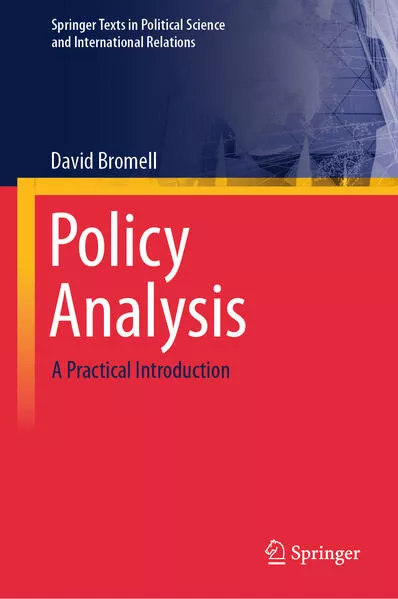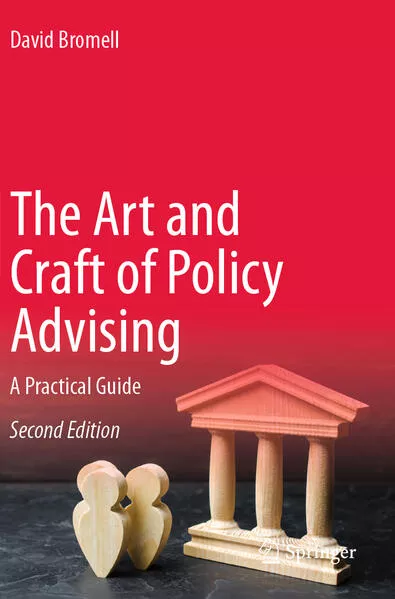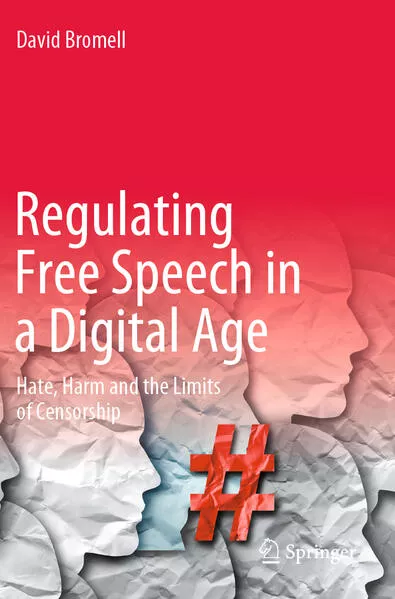
- Publikationen ca: 9
- Buchbewertungen ca: 4
- Fragen & Antworten
David Bromell
David Bromell worked in senior policy advice roles in New Zealand’s central and local government from 2003 to 2020. He is a Senior Associate of the Institute for Governance and Policy Studies in the School of Government at Victoria University of Wellington, and an Adjunct Senior Fellow in the Department of Political Science and International Relations at the University of Canterbury. His research on hate, harm and the limits of censorship was conducted as a Fellow at the Center for Advanced Internet Studies in Bochum, Germany, from October 2020 to March 2021.
Policy Analysis
This text for students of politics and public policy, and for learning on the job by new policy analysts, provides a practical introduction grounded in the author’s experience of working in public policy.In four concise chapters, Part I steps through doing policy analysis in practice: from clear commissioning and project planning, to doing analysis through collective thinking, to telling a compelling policy story, to peer review and quality assurance.
Policy Analysis
This text for students of politics and public policy, and for learning on the job by new policy analysts, provides a practical introduction grounded in the author’s experience of working in public policy.In four concise chapters, Part I steps through doing policy analysis in practice: from clear commissioning and project planning, to doing analysis through collective thinking, to telling a compelling policy story, to peer review and quality assurance.
Policy Analysis
This text for students of politics and public policy, and for learning on the job by new policy analysts, provides a practical introduction grounded in the author’s experience of working in public policy.In four concise chapters, Part I steps through doing policy analysis in practice: from clear commissioning and project planning, to doing analysis through collective thinking, to telling a compelling policy story, to peer review and quality assurance.
The Art and Craft of Policy Advising
This book offers a practical guide for policy advisors and their managers, grounded in the author’s extensive experience as a senior policy practitioner in New Zealand’s Westminster-style system of government. A key message is that effective policy advising is less about cycles, stages and steps, and more about relationships, integrity and communication.
Regulating Free Speech in a Digital Age
Hateful thoughts and words can lead to harmful actions like the March 2019 terrorist attack on mosques in Christchurch, New Zealand. In free, open and democratic societies, governments cannot justifiably regulate what citizens think, feel, believe or value, but do have a duty to protect citizens from harmful communication that incites discrimination, active hostility and violence.
The Art and Craft of Policy Advising
This book offers a practical guide for policy advisors and their managers, grounded in the author’s extensive experience as a senior policy practitioner in New Zealand’s Westminster-style system of government. A key message is that effective policy advising is less about cycles, stages and steps, and more about relationships, integrity and communication.
The Art and Craft of Policy Advising
This book offers a practical guide for policy advisors and their managers, grounded in the author’s extensive experience as a senior policy practitioner in New Zealand’s Westminster-style system of government. A key message is that effective policy advising is less about cycles, stages and steps, and more about relationships, integrity and communication.
Regulating Free Speech in a Digital Age
Hateful thoughts and words can lead to harmful actions like the March 2019 terrorist attack on mosques in Christchurch, New Zealand. In free, open and democratic societies, governments cannot justifiably regulate what citizens think, feel, believe or value, but do have a duty to protect citizens from harmful communication that incites discrimination, active hostility and violence.
Regulating Free Speech in a Digital Age
Hateful thoughts and words can lead to harmful actions like the March 2019 terrorist attack on mosques in Christchurch, New Zealand. In free, open and democratic societies, governments cannot justifiably regulate what citizens think, feel, believe or value, but do have a duty to protect citizens from harmful communication that incites discrimination, active hostility and violence.








